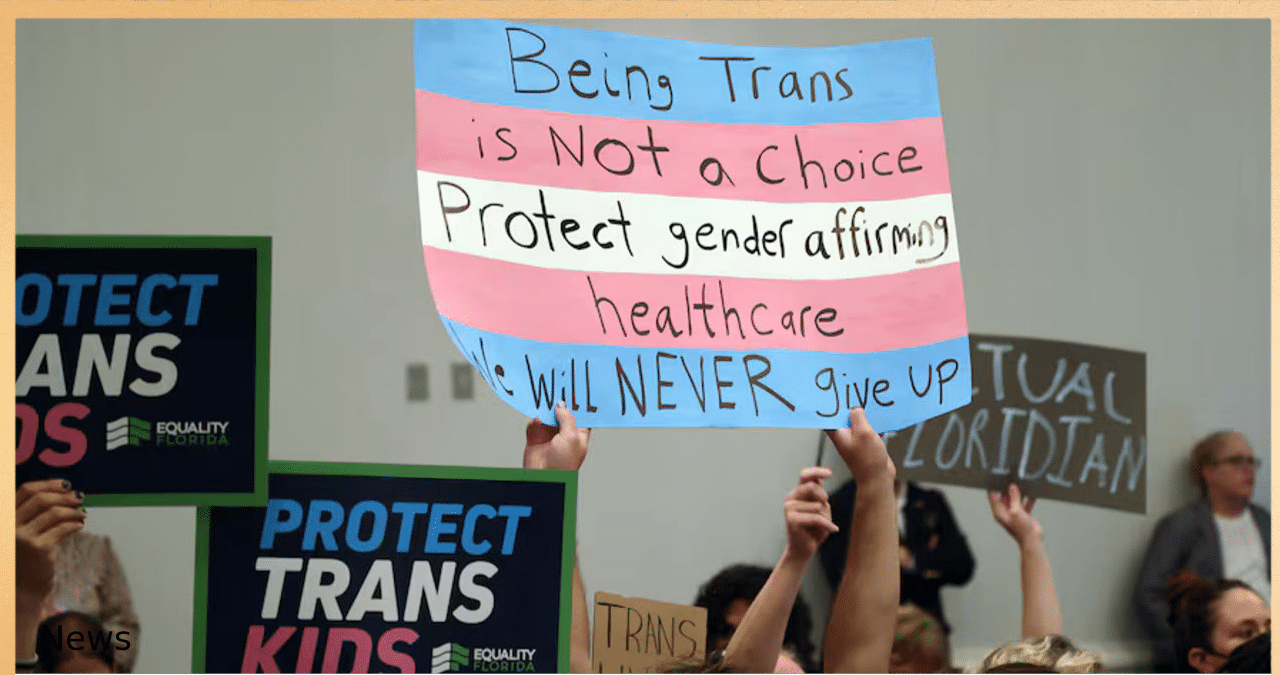On Wednesday, a federal judge blocked a new health care rule proposed by the Biden administration, which would have conflicted with Florida’s efforts to limit hormone therapy and puberty blockers for transgender individuals.
In a 50-page decision, U.S. District Judge William Jung, based in Tampa, granted a preliminary injunction to block the rule from being implemented in Florida. He stated that the state has already demonstrated that it will suffer an imminent injury, with plaintiffs including the state Agency for Health Care Administration, responsible for the Medicaid program, and the state Department of Management Services, which manages the state employee health insurance program.
According to Jung, the healthcare providers regulated by the plaintiff agencies have two options: they can either blatantly violate Florida law, or they can openly breach the new rule.
The main objective of the upcoming rule, which was supposed to be implemented on Friday, is to uphold a federal law that prohibits any kind of discrimination in healthcare programs receiving federal funding. The law clearly states that discrimination based on “sex” is strictly prohibited, and this rule intends to include discrimination based on gender identity under the same umbrella.
On May 6, the state filed a lawsuit against the U.S. Department of Health and Human Services and the federal Centers for Medicare & Medicaid Services in response to the finalized rule.
On Wednesday, a Mississippi federal judge granted a preliminary injunction against the rule in a lawsuit brought forth by 15 states including Tennessee, Mississippi, Alabama, Georgia, Indiana, Kansas, Kentucky, Louisiana, Nebraska, Ohio, Oklahoma, South Carolina, South Dakota, Virginia, and West Virginia. This injunction applies nationwide, however, it is important to note that Judge Jung’s decision in Florida was only limited to that state.
In recent years, Republican-controlled states like Florida have faced legal battles and criticism over their decisions to limit or completely block treatments for individuals diagnosed with gender dysphoria. These restrictions have included preventing Medicaid coverage for essential treatments like hormone therapy and puberty blockers, as well as prohibiting minors from receiving them.
In its lawsuit, Florida argues that the rule is improper as it seeks to override the restrictions on treatments. This would not only jeopardize the state’s finances but also the managed-care plans that assist in running the state’s healthcare programs.
Last month, attorneys from the U.S. Department of Justice filed a brief arguing that the lawsuit is based on several misunderstandings about the rule. They also stated that the motion for a preliminary injunction should be denied.
According to the brief, the rule does not establish a standard of care or mandate the provision of any specific service. It also emphasizes that a clinician’s medical judgment regarding the necessity or appropriateness of a service for a patient cannot be overridden by the rule.
According to Jung, the Department of Management Services would need to change its policy of not reimbursing managed care plan members for sex-change treatments under the new rule.
Jung explained that the Florida Legislature must grant permission before the department can make any changes to its self-funded insurance plan, which includes gender transition treatment. Since the legislature is not in session, and has previously prohibited the use of tax dollars for this type of treatment, it is not possible for the department to comply. If the rule is not stayed, the Department of Management Services will undoubtedly suffer irreparable harm.
According to Jung, the 11th U.S. Circuit Court of Appeals has made several rulings regarding gender identity, including a recent decision in 2022. This ruling upheld a policy by the St. Johns County School Board that prohibited a transgender male student from using the boys’ bathrooms at a high school. It’s worth noting that the appeals court, which is based in Atlanta, hears cases from Florida, Georgia, and Alabama.
According to Jung, the recently introduced healthcare regulation is related to a specific interpretation of sex discrimination under Title IX. However, the bathroom policy was found to be in compliance with Title IX, a federal law that prohibits discrimination based on sex in educational programs, as per the decision of the appeals court.
Jung emphasized that the implementation of the final rule would be futile and ineffective if it fails to include discrimination based on gender identity in Title IX regulations. He cited the Eleventh Circuit’s position on the matter, which states that Title IX does not cover gender identity discrimination. According to Jung, the court’s ruling puts an end to the debate, rendering the new rule inapplicable in the Eleventh Circuit.
Joining Alabama, Georgia, and South Carolina, Florida Attorney General Ashley Moody has taken issue with a recent rule from the Biden administration regarding sex-based discrimination in educational programs. The lawsuit claims that the administration has exceeded its legal authority by extending regulations to include discrimination based on gender identity and sexual orientation.
As of Wednesday evening, the online docket revealed that the education case in Alabama had a hearing on Monday. However, the federal judge assigned to the case has yet to issue a ruling on the states’ request for a preliminary injunction.



